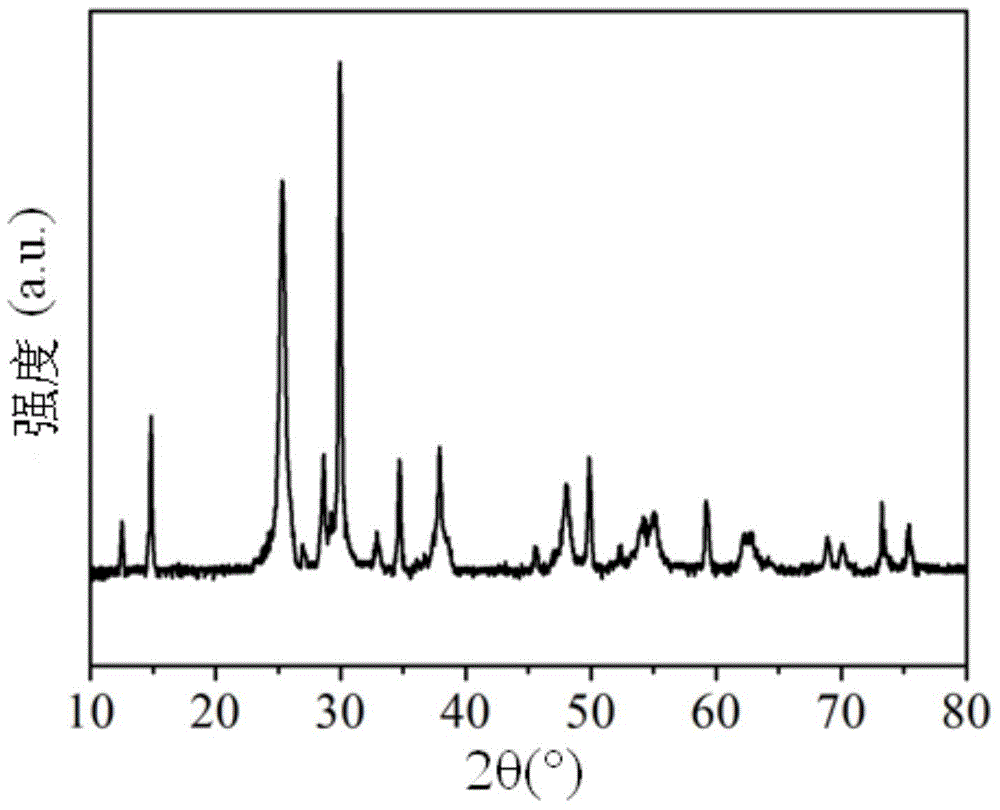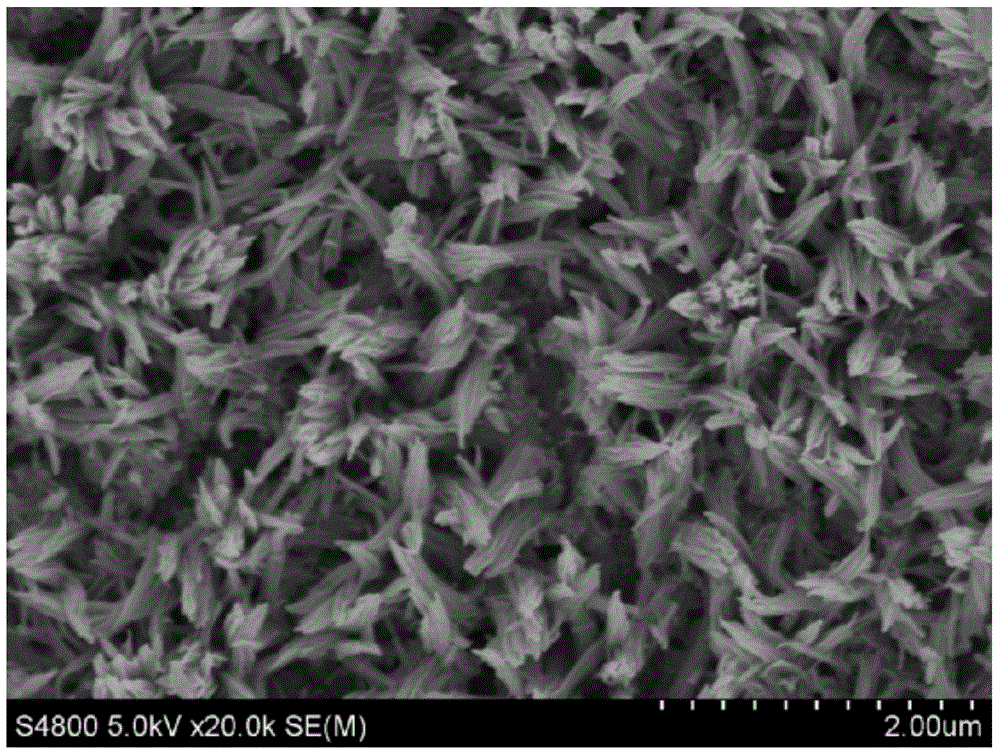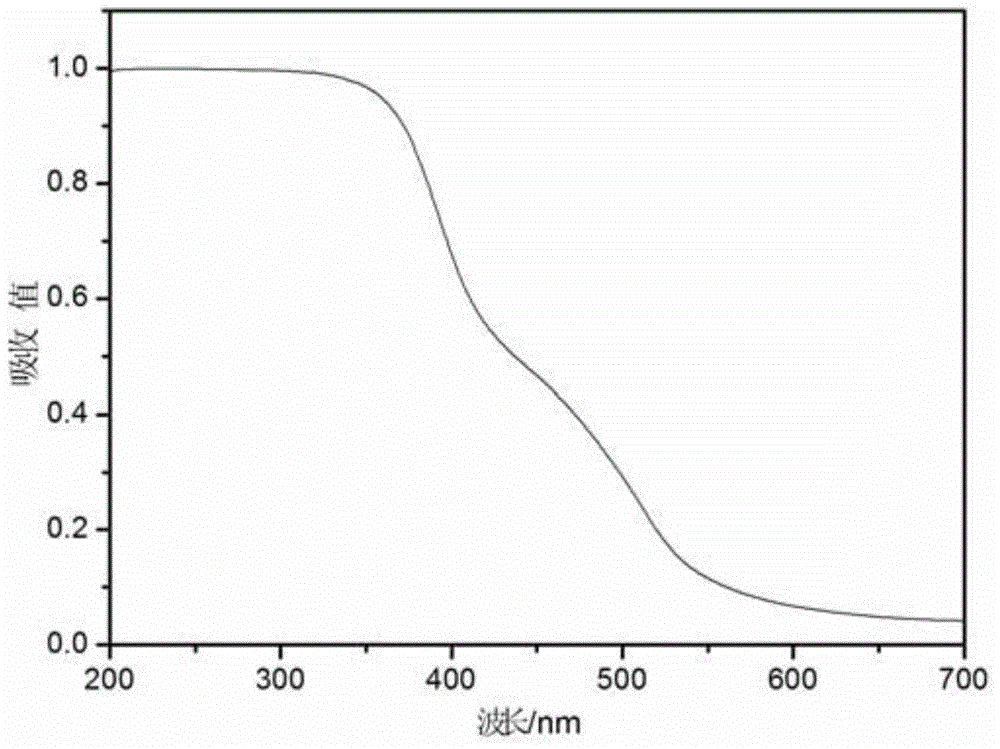Preparation method of self-cleaning Bi2Ti2O7/TiO2 nanowire array composite film with visible-light response
A nanowire array and self-cleaning technology, applied in chemical instruments and methods, chemical/physical processes, physical/chemical process catalysts, etc., can solve the problems of resource consumption, maintaining clean surfaces, high risks, etc., and achieve low cost , easy to separate, good stability
- Summary
- Abstract
- Description
- Claims
- Application Information
AI Technical Summary
Problems solved by technology
Method used
Image
Examples
specific Embodiment approach 1
[0024] Specific implementation mode 1: This implementation mode is a self-cleaning Bi with visible light response 2 Ti 2 o 7 / TiO 2 The preparation method of the nanowire array composite film is specifically completed according to the following steps:
[0025] 1. Preparation of a glass substrate loaded with a titanium dioxide nanowire array precursor film: Dissolve the titanium source in absolute ethanol, then add polyol, and then stir at a stirring speed of 100r / min to 300r / min for 15min to 30min to obtain Mixed solution A; move the mixed solution A into the polytetrafluoroethylene reactor, and then put the clean glass substrate into the polytetrafluoroethylene reactor at an angle of 60° to the axis of the polytetrafluoroethylene reactor , then put the sealed polytetrafluoroethylene reactor into a drying oven with a temperature of 180°C to 200°C for heating for 10h to 24h, then cool the sealed polytetrafluoroethylene reactor to room temperature naturally, and place the gla...
specific Embodiment approach 2
[0037] Embodiment 2: The difference between this embodiment and Embodiment 1 is that the titanium source described in step 1 is isopropyl phthalate or tetrabutyl titanate. Other steps are the same as in the first embodiment.
specific Embodiment approach 3
[0038] Embodiment 3: The difference between this embodiment and Embodiment 1 or 2 is that the polyhydric alcohol described in step 1 is glycerol. Other steps are the same as those in Embodiment 1 or 2.
PUM
 Login to View More
Login to View More Abstract
Description
Claims
Application Information
 Login to View More
Login to View More - R&D
- Intellectual Property
- Life Sciences
- Materials
- Tech Scout
- Unparalleled Data Quality
- Higher Quality Content
- 60% Fewer Hallucinations
Browse by: Latest US Patents, China's latest patents, Technical Efficacy Thesaurus, Application Domain, Technology Topic, Popular Technical Reports.
© 2025 PatSnap. All rights reserved.Legal|Privacy policy|Modern Slavery Act Transparency Statement|Sitemap|About US| Contact US: help@patsnap.com



